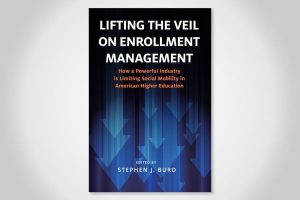The Free Application for Federal Student Aid (FAFSA) is a crucial form that millions of students in the United States fill out each year to determine their eligibility for financial aid for college. However, a recent report has shed light on a forgotten group of students who are falling through the cracks when it comes to receiving financial aid through the FAFSA.
The report, titled “The FAFSA Fiasco’s Forgotten Students,” highlights the struggles faced by homeless and foster youth, as well as students with incarcerated parents, in completing the FAFSA and accessing much-needed financial aid. These students often face unique challenges in filling out the FAFSA form, such as lack of access to necessary documentation, unstable living situations, and lack of parental support.
According to the report, over 100,000 homeless and foster youth are estimated to be enrolled in U.S. colleges every year, yet only a small fraction of them receive financial aid through the FAFSA. This is due in part to the barriers these students face in completing the form, as well as a lack of awareness among school counselors and financial aid administrators about the specific needs of these students.
One of the key issues identified in the report is the requirement for students to provide parental information on the FAFSA, even if they are homeless or have been in foster care. This presents a significant hurdle for students who may not have contact with their parents or who have unstable living situations. As a result, many of these students are unable to complete the FAFSA and miss out on crucial financial aid opportunities.
In addition, students with incarcerated parents face similar challenges in completing the FAFSA, as they may not have access to the necessary financial information or support from their parents. This can leave these students without the financial aid they need to attend college and pursue their educational goals.
The report calls for policymakers and education officials to take action to address the needs of these forgotten students. This includes revising the FAFSA form to better accommodate the unique circumstances of homeless and foster youth, as well as students with incarcerated parents. It also calls for increased training and support for school counselors and financial aid administrators to better serve these students.
Overall, the FAFSA fiasco’s forgotten students highlight the urgent need for greater awareness and support for marginalized student populations in accessing financial aid for college. By addressing the barriers faced by homeless and foster youth, as well as students with incarcerated parents, we can ensure that all students have the opportunity to pursue higher education and achieve their academic dreams.



